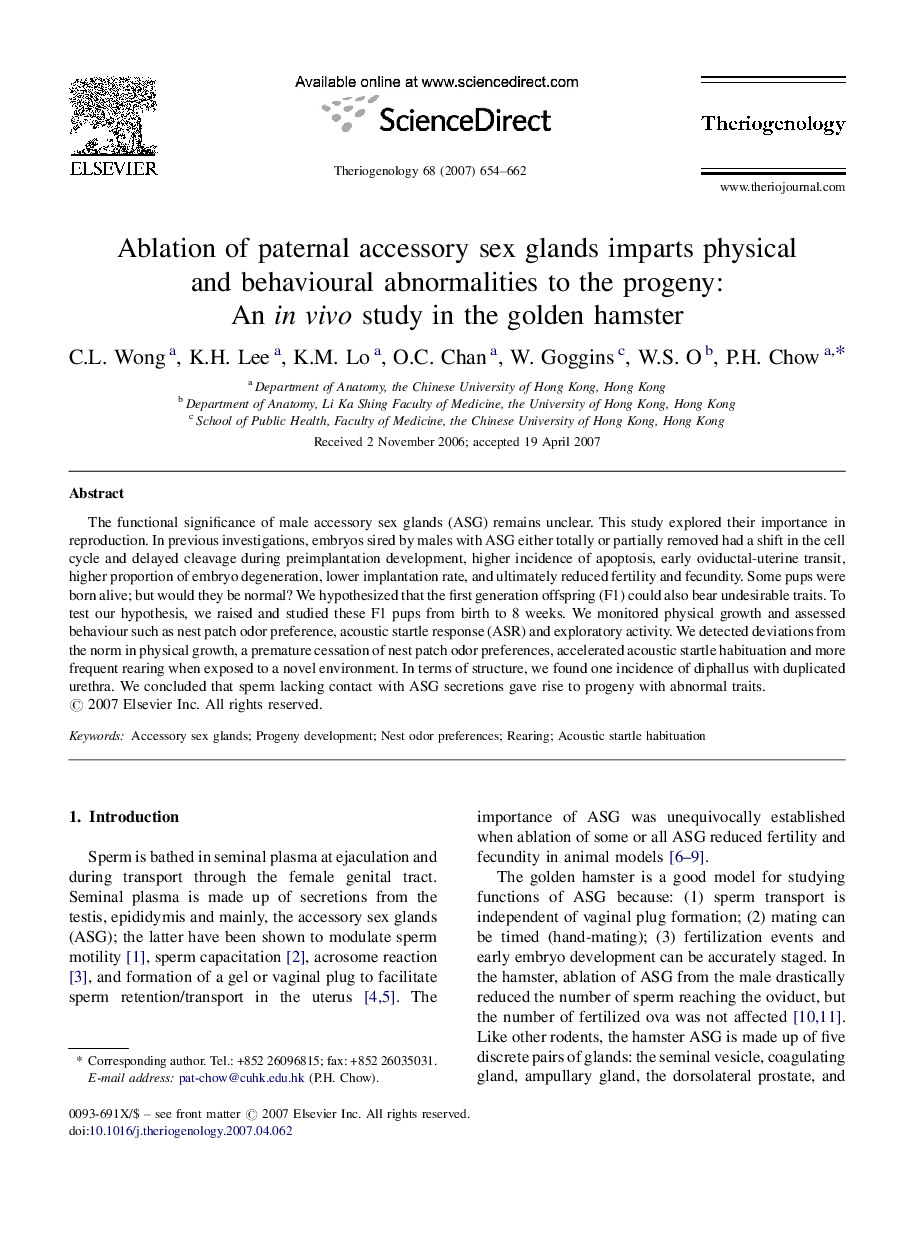| Article ID | Journal | Published Year | Pages | File Type |
|---|---|---|---|---|
| 2097243 | Theriogenology | 2007 | 9 Pages |
The functional significance of male accessory sex glands (ASG) remains unclear. This study explored their importance in reproduction. In previous investigations, embryos sired by males with ASG either totally or partially removed had a shift in the cell cycle and delayed cleavage during preimplantation development, higher incidence of apoptosis, early oviductal-uterine transit, higher proportion of embryo degeneration, lower implantation rate, and ultimately reduced fertility and fecundity. Some pups were born alive; but would they be normal? We hypothesized that the first generation offspring (F1) could also bear undesirable traits. To test our hypothesis, we raised and studied these F1 pups from birth to 8 weeks. We monitored physical growth and assessed behaviour such as nest patch odor preference, acoustic startle response (ASR) and exploratory activity. We detected deviations from the norm in physical growth, a premature cessation of nest patch odor preferences, accelerated acoustic startle habituation and more frequent rearing when exposed to a novel environment. In terms of structure, we found one incidence of diphallus with duplicated urethra. We concluded that sperm lacking contact with ASG secretions gave rise to progeny with abnormal traits.
